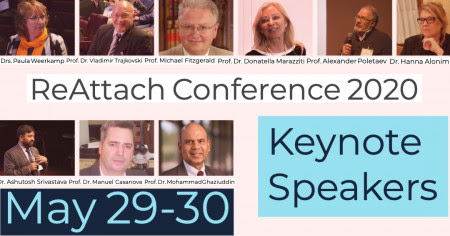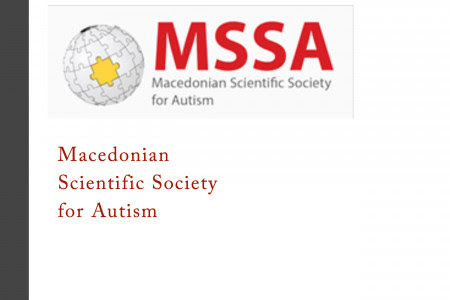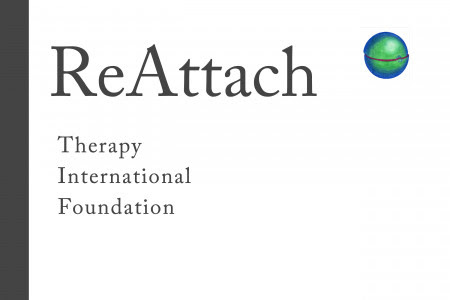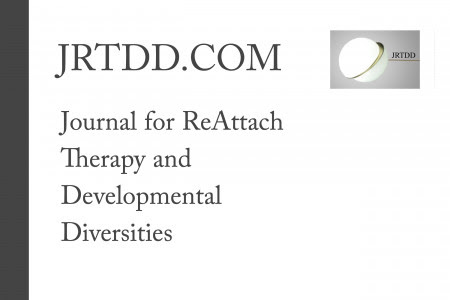Call for abstracts2nd Scientific ReAttach Conference
|
Tag: MSSA
#AutismPCP kick-off meeting realized in Patras
Dear colleagues,
I want to inform you that we realized the first meeting of #AutismPCP priject from December 11th to December 12th in Patras, Greece. Twelve participants from 6 partners countries (Greece, Cyprus, Bulgaria, Romaina, Italy and Macedonia) attended there. Participating Organisations were:
- D.A.D.A.A (Association of Parents, Legal Guardians & Friends of Children & Adults in Autism spectrum disorders and Aspergers’)
- MAENDELEO FOR CHILDREN APS
- Scoala Gimnaziala Smaranda Gheorghiu
- CYCLISIS
- SHIPCON LIMASSOL LIMITED
- PARVI NATIONALEN CENTAR PO DYSLEXIA
- Macedonian Scientific Society for Autism.
Partners have presented their organizations. Than presentation of project design, work plan, time table, distribution of tasks and responsibilities, were discussed. Also dissemination plan, further dissemination activities/specific tasks, website, social media, leaflet, logo, were subject of this meeting. Autism Life Planning Tools and Intellectual Output with focus on O1 were topics as well.
Next transnational meeting will held in Romania in May 2019.
President of MSSA
#AUTISM PCP – A hollistic approach of person-centred planning for people with Autism
AUTISM PCP‘ is an innovative cross-sectoral partnership project with strong European
added value; as such, ‘AUTISM PCP’ addresses important horizontal as well as sectoral priorities
for the European Union, such as ‘social inclusion, adult learning policies and Early School
Leaving (ESL).
The main objectives of ‘AUTISM_PCP’ are:
– Empowerment of individuals at risk of social exclusion and more specifically empowerment of ASC
individuals
– Strengthening of the overall effort for social inclusion and integration of ASC individuals at
mainstream education & society at large
– Enhancing competences of professionals and all those individuals, such as family members & relatives, etc., involved in the life of ASC individuals
– Raise awareness to the general public with regards to social inclusion of pupils with Autism
Source: http://www.autismholistic.eu/
WHAT CAN REATTACH DO FOR INDIVIDUALS WITH AUTISM?
Let’s take a few minutes to explain the impact of the multimodal approach of ReAttach:
- ReAttach trains Multiple Sensory Integration Processing
- ReAttach trains coherent concepts
- ReAttach trains complex social cognitive skills and we start at a very low entry level
- Our therapists use cognitive bias modification to practise new neuropsychological patterns and new thinking strategies that might be very useful in situations that are quite complicated
This results in:
- The ability to learn from new experiences (problems with transfer disappear)
- The ability to understand social concepts and read the non-verbal cues and social rules and behaviours that are not explicitly explained
- Self-awareness and behaviour control
- Improvement of executive functioning
- Sensory overload decreases or disappears because sensory information can be processed quicker and better in a coherent way (by multiple sensory integration processing)
- The development of new skills such as: imagination, expressing emotions, showing empathy, theory of mind, mentalization, reading your own body signals
With pre-verbal children or adults with autism ReAttach can achieve this:
- Multiple Sensory Integration Processing
- Coherent concepts of the self and others
- Differentiation between the self and others
- Echolalia changes into communication addressing to the self and the other
- Exploration and play.
In the Netherlands we already provide the ReAttach for Autism intervention in institutions for Mental Health, private practises and institutions for people with cognitive disabilities. In WTA March 2015 a case study was published in Dutch.
The method has been presented at the World Autism Organisation Conference in 2014 and 2016 and at the Autism Challenges and Solutions Conference in Moscow, April 2016.
The practical research has been published in Clinical Neuropsychiatry, a peer-reviewed journal for treatment evaluation. It has been rewarded with a nomination of the Clinical Neuropsychiatry Award.http://clinicalneuropsychiatry.org
Prof Dr Vladimir Trajkovski has presented this autism research paper in Belgrade last year and represents us in the Balkan region.
In Prof Dr Michael Fitzgerald’s book Autism Recent Advances there is a chapter on ReAttach about a case study with a patient with Asperger syndrome. http://www.intechopen.com/books/autism-spectrum-disorder-recent-advances/reattach-the-exciting-development-of-a-promising-intervention-for-autism-spectrum-disorders
Availability
International training courses are scheduled to deliver the ReAttach for Autism in the upcoming year to: Belgium (Gent, Leuven, Antwerpen), Singapore, United Kingdom (London), Germany (Keulen, Mannheim, Muenster), Italy (Rome), Vancouver BC, Australia (Sydney, Melbourne,) and New York.
For more information you may contact ReAttach Therapy Institute
info@reattach-therapy-institute.com
Source: AutsimEye
IMPACT of Parent Education on Families in South-EAST Europe
Objectives: A three-year European Union-funded project has been established involving family members, professionals and academics. Its objectives are to develop a core parent autism education curriculum and locally appropriate parent education materials and methods; to provide parent education in three diverse south-eastern European countries (Croatia, Cyprus and the Former Yugoslav Republic of Macedonia) where diagnosis and service provision are emergent; to develop local parent education teams within these countries to ensure sustainability; and to evaluate the impact of the parent education events upon families attending.
Methods: After reviewing the literature and surveying parental priorities in the three countries, a 12-hour parent education programme and locally differentiated training materials were developed. In total, five cohorts of approximately 20 parents each will receive parent education within each of the three countries. A combined process and outcome mixed methods evaluation methodology (Royse et al 2009) is being used to evaluate the project. Data are gathered via pre-attendance, post-attendance and follow-up (3-month) parent questionnaires – incorporating the CarerQoL quality of life scale (Hoefman et al 2014) – from all participants, semi-structured interviews with a purposive sample of parents, trainer focus groups and reflective diaries, and document analysis. We here report on quantitative (n = 108) and qualitative data (n = 20) from parent cohorts 1 and 2.
Results: Quantitative data identify that >90% of respondents have improved their understanding of autism, >80% report improved child communication and >75% report improvements in overall family life, their ability to predict their child’s behaviour and their ability to respond to concerns and comments from the broader family. Carer QoL data indicate increased parental happiness following attendance (p=.001). Key themes from qualitative data are the positive impact of attending the parent education programme, increased awareness regarding sensory and communication issues and improvements in everyday life. Parents also reported that attendance provided opportunities to meet other parents and reduced social isolation.
Conclusions: Data from parent cohorts 1 and 2 identify that parents who have attended the parent education programme have found it beneficial, and that it has had a positive impact on their family life. Key areas of impact have been improvements in communication and improved management of sensory and behavioural issues. This supports the continued and wider provision of parent education within these countries. Further data from cohorts 3 and 4 will have been collected and analysed by the time of INSAR 2018.
Source: INSAR
MSSA in OMICS International
Macedonian Scientific Society for Autism is a general public of residents unique teachers, specialists, restorative specialists, immunologists, allergologists, and other expert and experimental controls, built up by a through and through freedom of the subjects to achieve and facilitate their interests and to perform exercises and activities went for enhancing examination and treatment of the people with a mental imbalance in the Republic of Macedonia. Macedonian Scientific Society for Autism is managing more extensive normal premium, and the Society’s unique points and the assignments: examination components associated with a mental imbalance; examination the impacts of recovery on the people with extreme introvertedness; Â treatment of the people with a mental imbalance; collaboration with the guardians of the kids with a mental imbalance; coordination of legislative and non-administrative associations managing a mental imbalance.
Source: OMICS International
VIII interdisciplinary congress in Moscow
The president of MSSA Prof. Dr. Vladimir Trajkovski is invited lecturer at the VIII interdisciplinary vocational scientific congress with international participation “Children’s cerebral palsy and other disorders in children’s movement”, which will be held from 1 to 2 November 2018 in Moscow, Russia. Within the 30 minute lecture he will speak on the topic: “Association between Cerebral Palsy and Autism Spectrum Disorders”. Besides the lecture, significant contacts are planned with medical institutions from Russia and across Europe.
New web site of MSSA has been launched
Dear colleagues,
I am very pleased to inform you that on the great holiday, the Day of the Macedonian Revolutionary Struggle – 23 October 2018, the new website of the Macedonian Scientific Society for Autism was enriched with new contents, new photos and new events. Namely, why new? To be honest, we had no plans to make a new one. But because of the big accident that happened with our former hosting that was going through the company Ars Lamina, who changed the servers, and their webmaster did not update it regularly, it was not back up and we stayed with an old website updated until 2011. Great drama for us with lost lot of data, files and the like. After a couple of weeks of negotiation, will they find a solution, but once I see that they are powerless, I decided to make a new web site and I asked my dear friend and web master Gjorgji Pop Gjorgiev to the magazine JRDDD, which without hesitation accepted and in 15 days we have a new web page. On this occasion I owe him great gratitude to him, but also to the colleagues from Ars Lamina who, although they made us irreparable damage at the moment, still have been hosting our web site for five years. I would like to apologize here (because, it was no our fault, we were not available) to all those who visited our domain in recent weeks and watched old content or an empty page. I sincerely hope that you will like the new website, for which I invite you to visit the above link.
President of MSSA




